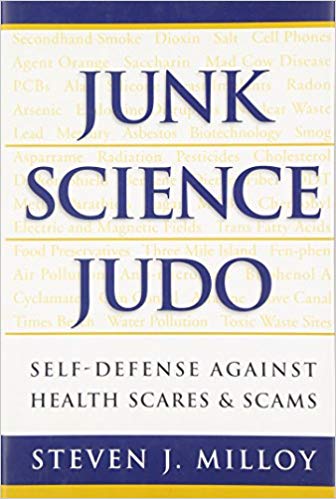Can We Cope If the Lights Go Out?
Every issue explores cutting-edge developments in technology, medicine, education, climate change, and much more. Articles provide in-depth analyses of science and technology’s impact on public policy, the economy, and society—bringing today’s best minds to bear on tomorrow’s most critical topics.
Editor's Journal
Let (Most) Discussions Begin
“Science must be seen as organized evil,” warned one speaker. “Science is a force that can liberate us from everything from tooth decay to violence and premature death,” declared another. When Columbia… Read More
From the Hill
From the Hill – Spring 2002
Federal R&D in FY 2002 will have biggest percentage gain in 20 years Federal R&D spending will rise to $103.7 billion in fiscal year (FY) 2002, a $12.3 billion or 13.5 percent… Read More
Perspectives
Life-Saving Products from Coral Reefs
During the past decade, marine biotechnology has been applied to the areas of public health and human disease, seafood safety, development of new materials and processes, and marine ecosystem restoration and remediation.… Read MoreA Makeover for Engineering Education
Hollywood directors are said to be only as good as their last picture. Maintaining their reputations means keeping up the good work–continuing to do encores that are not only high-quality but that… Read More
Features
Can the Pentagon Be Run Like a Business?
The U.S. defense industry is hardly a bastion of free market competition. The industry has a socialist component: government laboratories, shipyards, depots, and arsenals that, in many cases, compete with private companies.… Read MoreBolstering the Security of the Electric Power System
The 2001 terrorist attacks made it clear that our airliners, tall buildings, water, and even our mail are potential targets. What will actually be attacked depends on the terrorists’ goals, the damage… Read MoreEnvironmental Policy for Developing Countries
Most developing countries have long since established laws and formal governmental structures to address their serious environmental problems, but few have been successful in alleviating those problems. The development banks, which control… Read MoreA Sweeter Deal at Yucca Mountain
As this is written in the late winter of 2002, the stage is set for a struggle in Congress over whether to override the impending Nevada veto of President Bush’s selection of… Read MoreUpdating Automotive Research
On January 9, 2002, Department of Energy (DOE) Secretary Spencer Abraham announced a new public-private cooperative research program with the three major domestic automakers. According to a press release, the program would… Read MoreSolving the Broadband Paradox
If The Graduate were being filmed today, the one-word piece of advice that young Benjamin Braddock would hear is “broadband.” Most simply defined as a high-speed communications connection to the home or… Read MorePutting Teeth in the Biological Weapons Convention
In the fall of 2001, letters sent through the U.S. mail containing powdered anthrax bacterial spores killed five people, infected 18 others, disrupted the operations of all three branches of the U.S.… Read MoreSpring 2002 Update
Bush reverses course, supports funding boost for nonproliferation efforts In “Improving U.S.-Russian Nuclear Cooperation” (Issues, Fall 2001), I highlighted the misguided decision of President Bush to propose significant funding reductions… Read More
Book Reviews

Science at the CIA
The science and technology (S&T) achievements of the Central Intelligence Agency (CIA) have been responsible for many of the agency’s key accomplishments in the field of intelligence analysis. Intelligence gleaned from technical… Read More
Imaginary Hazards, Imaginary Cures
Spectacular discoveries in the diagnosis, treatment, and prevention of disease have become the stuff of daily headlines. Diseases that have tormented humans for all of history have been virtually eradicated, life expectancy… Read More
Operation Deep Freeze
The US Navy’s Operation Deep Freeze I, launched in December 1955, set up facilities in McMurdo Sound, Antarctica, for use in the upcoming International Geophysical Year of 1957-1958.
